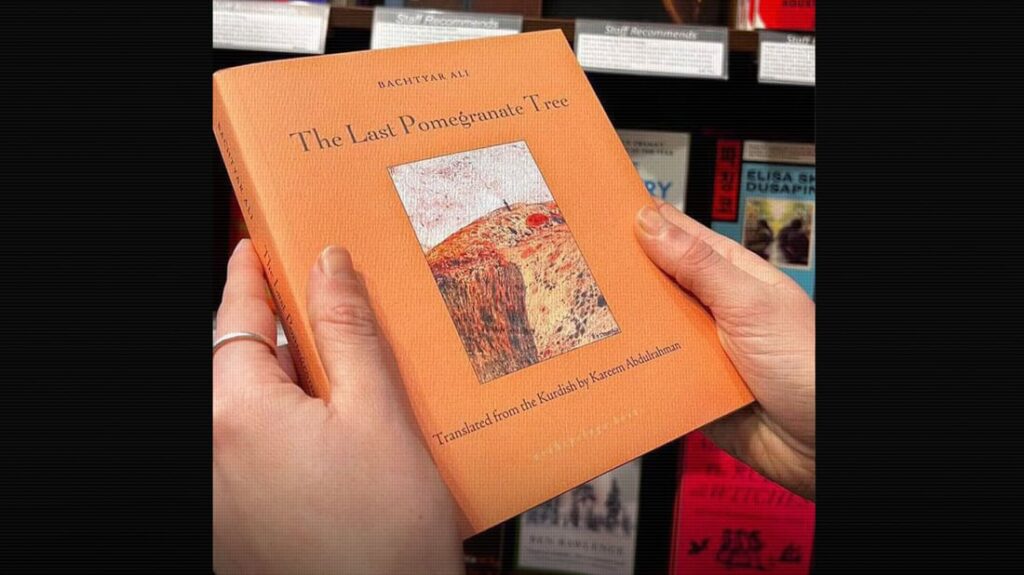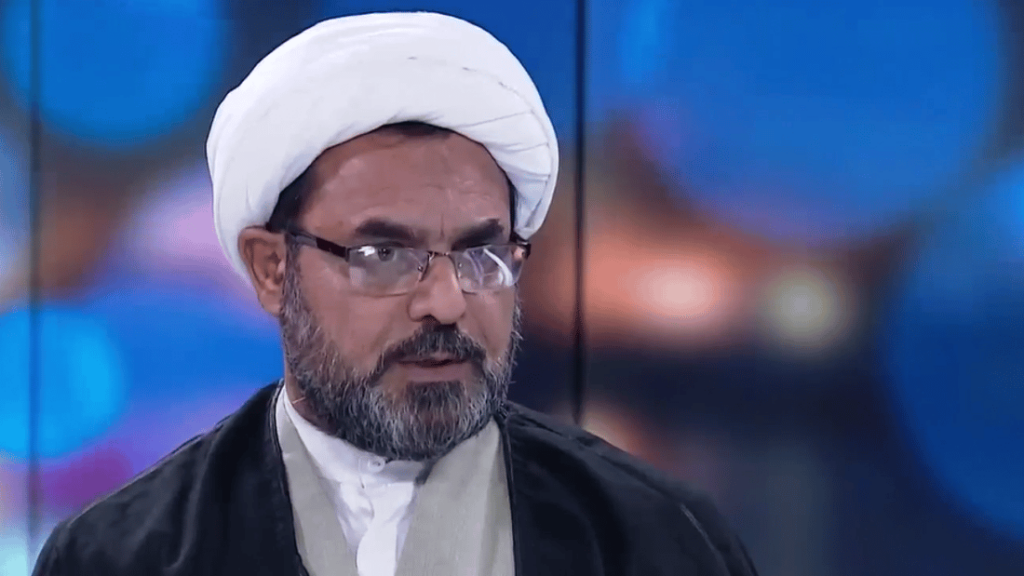Pro-Ankara Syrian Kurdish ENKS delegation meets Turkish FM

ANKARA,— A delegation from the pro-Turkey Syrian Kurdish National Council (ENKS), which is affiliated with Iraqi Kurdistan Democratic Party KDP party leader Massoud Barzani, on Wednesday met with the Turkish Foreign Minister Mevlut Cavusoglu to reportedly discuss abuses and demographic changes in the Kurdish areas of northern Syria occupied by Turkish forces and their Syrian Islamic proxies, pro-KDP Rudaw reported.
“Met w/delegation of Kurdish National Council of #Syria, legitimate representative of Syrian Kurdish people. Supporting their role w/in Syrian National Coalition & political process. Emphasized that biggest damage to Kurdish people comes from PKK/YPG terrorist organization,” Cavusoglu said in a tweet on Wednesday.
He was referring to the Kurdistan Workers’ Party (PKK), an armed group fighting for the cultural and political rights of Kurds in Turkey Kurdistan (Bakur), and the Syrian Kurdish Democratic Union Party (PYD), which controls Syrian Kurdistan (Rojava), the Kurdish region in northern Syria.
ENKS has been a member of the Ankara-backed Syrian National Coalition (SNC) since its foundation in 2012 but has frozen its membership since Turkey attacked Kurdish forces in October.
The ENKS, a Turkey-backed organization that opposed to the ruling Movement for a Democratic Society (TEV-DEM), which is led by the PYD, was established by Massoud Barzani and his KDP of Iraqi Kurdistan in October 2011. The KDP doesn’t recognized the autonomous Cantons and the self-government in Syrian Kurdistan.
The worldwide-respected PYD-led Autonomous Administration in Syrian Kurdistan has a secular decentralized self-rule, where equality between men and women, direct democracy, and environmental responsibility are emphasized.
ENKS, which comprised of 12 small Kurdish parties, do not have any real authority on the ground in Syrian Kurdistan and refused to recognize the Autonomous Administration in Syrian Kurdistan.
Massoud Barzani, who has close-ties with Turkish government, said in March 2016 any support to the Syrian Kurdish PYD party means support for the PKK. “They are exactly one and the same thing”,
The ENKS is also close to the so-called “Rojava Peshmerga” force in Iraqi Kurdistan, which has been found by Massoud Barzani and backed by Turkey. Most ENKS members have been living in Iraqi Kurdistan and Turkey after some were banned from entering northeast Syria due to perceived links with Turkey.
For years, the TEV-DEM was opposed to the ENKS. While the opposition ENKS is backed by the Kurdistan Regional Government (KRG) in neighbouring Iraq and has relations with Turkey, Ankara is deeply opposed to the TEV-DEM government of the Autonomous Administration of North and East Syria (NES).
In early 2018, Turkey invaded the Kurdish enclave of Afrin with the help of its Syrian Islamic Arab proxies, and then in October of 2019 again launched an offensive into the Kurdish regions of northern Syria, driving the Kurdish-led Syrian Democratic Forces (SDF) out of major towns.
Rights groups and displaced Kurdish families have accused Ankara-backed Syrian Arab Islamic militants of executions, home confiscations, looting and ethnic cleansing in that border strip.
The monitor said in October that more than 300,000 civilians, mostly Kurds, had been displaced by the assault.
According to human rights groups, international observers and analysts Turkey has justified a military attack on Kurds to achieve a hidden goal which is to disperse and drive Kurds out of their area and homes and create a demographic change along its border with Syria.
In Afrin, a widespread campaign of demographic change and ethnic cleansing has been ongoing for almost two years, and much of the Kurdish population is now displaced to camps in nearby Tel Rifat.
As for the recently seized border Kurdish towns, locals have suffered the same fate with daily abuses committed by Turkish-backed Islamist proxies.
“He [Cavusoglu] spoke of what the people of the areas where their [Turkish] forces exist in Afrin, Ras al-Ain, and Tel Abyad are going through at the hands of some factions and armed groups, expressing his rejection to these practices and the necessity of holding the perpetrators accountable,” read an ENKS presidency statement following the meeting.
The ENKS statement claimed the Turkish foreign minister rejected demographic change and supported the return of displaced families to their homes.
“It [ENKS] called on Turkey to help in the implementation of the its agreement with the [Syrian National] Coalition regarding putting an end to violations that the people of Serekaniye (Ras al-Ain), Gire Spi (Tel Abyad) are facing, and working on facilitating the return of the displaced to their homes safely,” the statement said.
The meeting took place at a sensitive time for Syria’s Kurds. Reconciliation efforts are underway between SDF Commander Mazloum Abdi and the ENKS, mediated by the KRG and the international community.
Earlier in February ENKS has officially announced it would reopen offices as part of ongoing attempts to strengthen ties with ruling Kurdish authorities in Syrian Kurdistan.
The self-administration in Syrian Kurdistan NES said in a December 17, 2019 statement that they would allow the ENKS to reopen offices in the region – shut down by the ruling authorities in 2016.
The ENKS meeting with Turkey’s foreign minister might set back the reconciliation effort, as hardline factions within the Rojava administration are deeply opposed to Turkey’s policies and its occupation.
Syria’s Kurds have established a semi-autonomous region in northeastern Syria during the country’s eight-year war.
In 2013, the Syrian Kurdish Democratic Union Party PYD — the political branch of the Kurdish People’s Protection Units (YPG) — has established three autonomous Cantons of Jazeera, Kobani and Afrin and a Kurdish government across Syrian Kurdistan in 2013. On March 17, 2016, Kurdish and Arab authorities announced the creation of a “federal region” made up of those semi-autonomous regions in Syrian Kurdistan.
The Kurdish Democratic Union Party PYD and its powerful military wing YPG/YPJ, considered the most effective fighting force against IS in Syria and U.S. has provided them with arms. The YPG, which is the backbone of the Syrian Democratic Forces SDF forces, the de facto army of the autonomous Kurdish region, has seized swathes of Syria from Islamic State.
The Syrian Kurdish forces expelled the Islamic State from its last patch of territory in the eastern Syrian village of Baghouz in March 2019.
11,000 Kurdish male and female fighters had been killed in five years of war to eliminate the Islamic State “caliphate” that once covered an area the size of Great Britain in Syria and Iraq.
(With files from rudaw.net | AFP| Reuters | Agencies)
Copyright © 2020 Ekurd.net. All rights reserved
Comments




